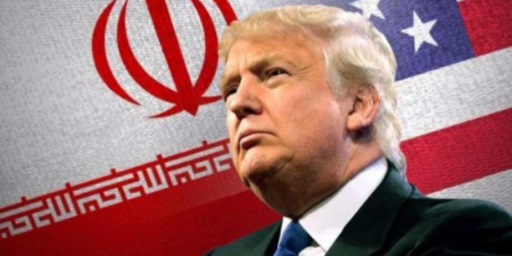More on Russia and Iran
I’ve been puzzling for some time over the reasons behind the cozy relationship between traditional adversaries Russia and Iran. Marriage of convenience? “The enemy of my enemy, etc.”?
TM Lutas, inspired by Glenn Reynolds, has offered another explanation:
It’s the southern route that is most threatening to Russia because unlike the Caucuses, Iran is not historically “bandit country” where grievances are relatively easy to stir up and profound instability is just a few strategic tribal/clan murders away. Iran is historically its own creature, a regional and sometimes world class power that is difficult to disrupt. It’s also the swiftest route for Caspian energy to hit the sea at which point it can go all over the world, including the EU. Russia’s strategy of political impunity through energy dominance of Europe is history if a stable post-mullah regime emerges in Iran.
Is Russia supporting the mullahs in Iran, however hazardous to Russian interests (not to mention to the Iranians themselves) that regime might be because a decent, stable, responsible regime in Iran would injure Russian economic and, as TM Lutas suggests, geopolitical interests? It’s certainly consistent with the subversion from within strategy that the Soviet Union pursued rather successfully, well, practically everywhere and in the Middle East in particular.
Certainly an intriguing suggestion that has the virtue of explaining the otherwise inexplicable.






The energy angle probably plays a role. However, at least as important is a combination of trade factors and the broader decline of Russian influence in the area. Russia used to be a key player in the Middle East. Now the US has substantially driven Russian influence out. Russia also used to export to the Middle East fairly extensively, especially military hardware. Similarly, it has declined in this field – those states that don’t prefer to trade with the USA have often taken to buying from former Soviet bloc states such as the Ukraine because they’re cheaper. Bottom line – quite apart from energy politics, Iran remains one of the last (precarious) toeholds of Russian influence in the area. If the regime changes, the chances are that the USA will move in and will to a substantial degree freeze the Russians out. It’s pretty old school stuff in that regard.
Lutas’ theory is clownish. It’s one of those “this idea is too stupid and self-serving to know where to start explaining its flaws” arguments. The “inexplicable” you seem to be having trouble explaining, Dave, is that:
a) Russia has a lot of business interests in Iran.
b) Russia is pushing back against what it sees as an American policy of encirclement.
It’s worth considering that because of those business and technical contacts, Russia probably has more real knowledge of Iran’s nuclear power program than we do. If they have good reason to believe that the US is crying wolf (again!) about a targeted country’s capabilities and intentions, then they would conclude that there’s no risk in letting Iran continue to play with its reactors and labs, and some benefit to Russia to be seen to be standing up against a globally unpopular Bush Administration.
You may well be right, Jim. Just to put forward my bona fides, I’m fluent in Russian and have been something of a student of Russian history and politics for, well, many years.
Of course, you’re right about Russian commercial agreements with Iran. But that’s not the entire story in the relationship and, as I say, if commercial interests overweigh all other considerations in Russia’s dealings with Iran, I find that puzzling.
“Inspired by Glenn Reynolds” is a warning label if ever I saw one.
To Henley’s remarks, I would add only that Russia has plenty of trouble with Islamists, and that antipathy to a regime known for funding Islamist terror & insurgency is not in Russia’s interests.
Anderson: Russia may not suffer under obscuring locutions like “Islamofascism,” and therefore may be able to distinguish among “Muslims hostile to Russian interests” and “Muslims useful to Russian interests.” They may place Iran in the latter category, the same way the Bush Administration currently places Hosni Mubarak in the “useful to American interests” camp, for better or worse.